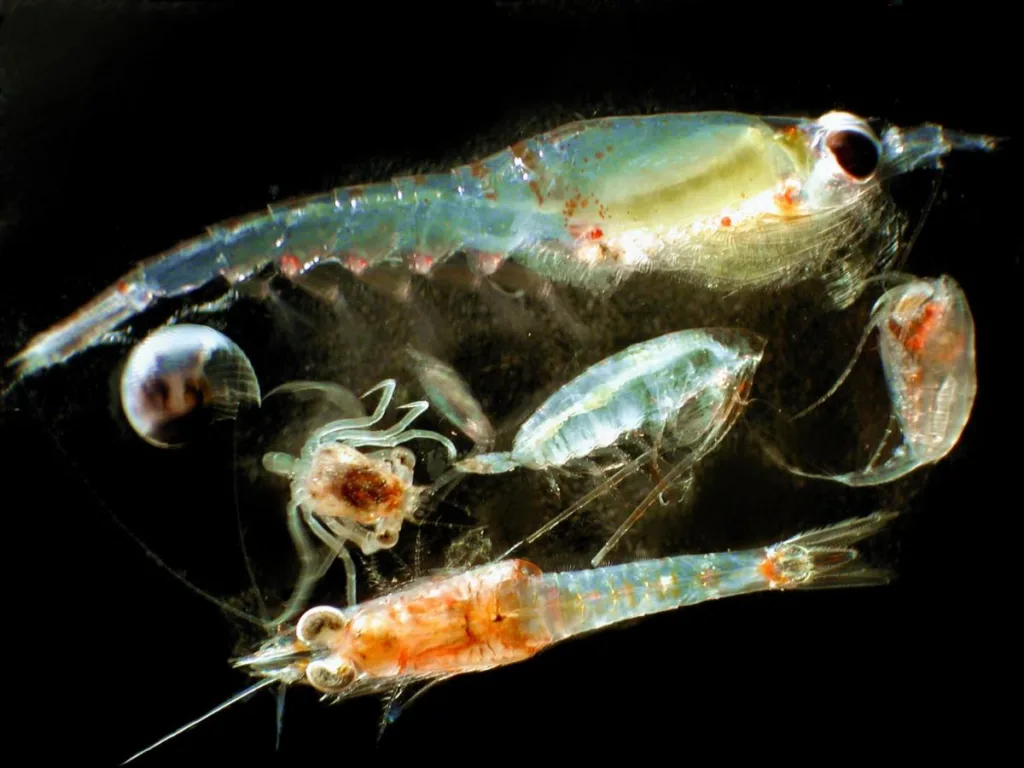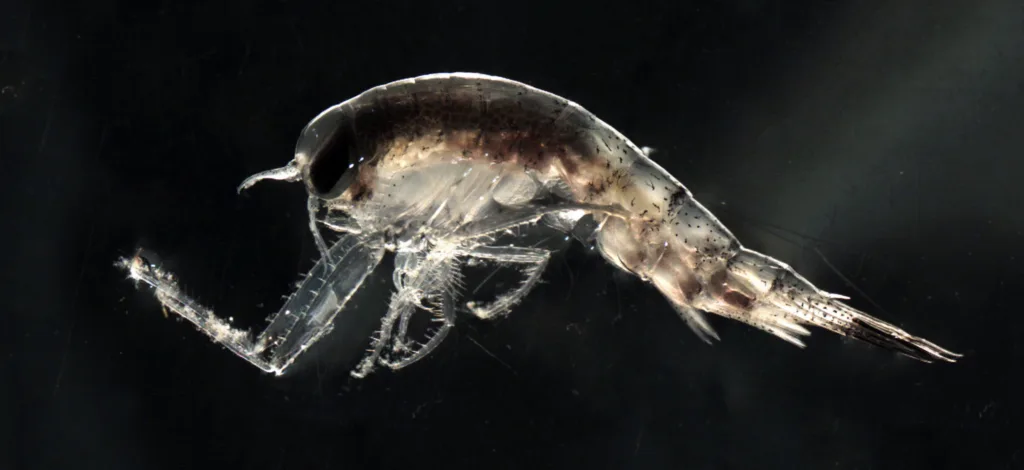Zooplankton are an important part of the aquatic food chain, playing a crucial role as primary consumers in the ecosystem. However, they are not producers, but rather depend on other organisms for their food.
Producers, also known as autotrophs, are organisms that can produce their own food using energy from the sun or from chemical reactions. Examples of producers include plants, algae, and some bacteria. These organisms are at the base of the food chain and provide energy for all other organisms in the ecosystem.
Zooplankton, on the other hand, are heterotrophs, whch means they cannot produce their own food and instead rely on other organisms for sustenance. Zooplankton feed on phytoplankton, which are the primary producers in aquatic ecosystems. Phytoplankton are microscopic plant-like organisms that use energy from the sun to produce their own food through photosynthesis.
Zooplankton are classified as herbivores, and they consume large quantities of phytoplankton in order to survive. They play a critical role in the food chain as a link between primary producers and higher-level consumers such as fish and other predatory organisms.
While zooplankton are not producers themselves, they are an essential part of the aquatic ecosystem and help to maintain a healthy balance of life in the water. Without zooplankton, populations of phytoplankton would grow out of control, leading to an imbalance in the ecosystem and potentially harmful algal blooms.
Zooplankton are not producers but rather primary consumers in aquatic ecosystems. They play a critical role in the food chain by consuming phytoplankton and providing sustenance for higher-level consumers. Understanding the role of zooplankton in the ecosystem is essential for maintaining a healthy and balanced aquatic environment.
Is Zooplankton A Producer Or Consumer?
Zooplankton are considered consumers in aquatic ecosystems. They are animal-like organisms that feed on phytoplankton, which are the primary producers of the marine food chain. Zooplankton are considered the primary consumers of plankton communities as they directly feed on these primary producers. They are then consumed by larger, secondary consumers such as fish and oher marine animals. It is important to note that zooplankton can be microscopic or macroscopic organisms, encompassing a wide range of species. zooplankton play a crucial role in the marine food chain as consumers and serve as a food source for many other organisms in aquatic ecosystems.

Is Zooplankton A Primary Producer?
Zooplankton is not a primary producer. Instead, they are primary consumers in aquatic food chains. They feed on phytoplankton, which are the primary producers in aquatic ecosystems. Zooplankton are present in the second trophic level, which means they obtain their energy from consuming primary producers. Therefore, they play a crucial role in transferring energy from the base of the food chain to higher trophic levels. zooplankton are not primary producers, but they are essential for maintaining the balance of aquatic ecosystems.
Is Zooplankton Primary Consumer?
Zooplankton are considered primary consumers as they mainly feed on phytoplankton, which are the primary producers in aquatic ecosystems. Phytoplankton are microscopic plants that float in the water column and produce organic matter through photosynthesis. Zooplankton, beng at the base of the food chain, play a vital role in transferring energy from primary producers to higher trophic levels in aquatic ecosystems. Furthermore, some species of zooplankton also feed on detritus and bacteria, which are also considered primary producers as they decompose organic matter and release nutrients into the water column. as primary consumers, zooplankton are important in maintaining the balance and productivity of aquatic ecosystems.
Why Is Zooplankton Not A Producer?
Zooplankton are not considered producers since they cannot synthesize their own food. Instead, they depend on primary producers such as phytoplankton or algae for their nourishment. As herbivorous micro-organisms, zooplankton feed on these primary producers and are an essential part of the aquatic food chain. Unlike plants, zooplankton are unable to carry out photosynthesis, which is the process by which plants produce their own food using sunlight, carbon dioxide, and water. zooplankton are not producers since they rely on other organisms for their sustenance and lack the ability to produce their own food.

Conclusion
Zooplankton cannot be classified as a producer as they are not capable of producing thir own food. They are, in fact, primary consumers that feed on phytoplankton, which are the true producers of aquatic ecosystems. Zooplankton play a crucial role in the food chain of aquatic communities, as they are a source of food for larger, secondary consumers such as fish. Understanding the role of zooplankton is important in maintaining the delicate balance of aquatic ecosystems. By properly managing the populations of zooplankton and other aquatic organisms, we can ensure the health and sustainability of our water resources for future generations.
